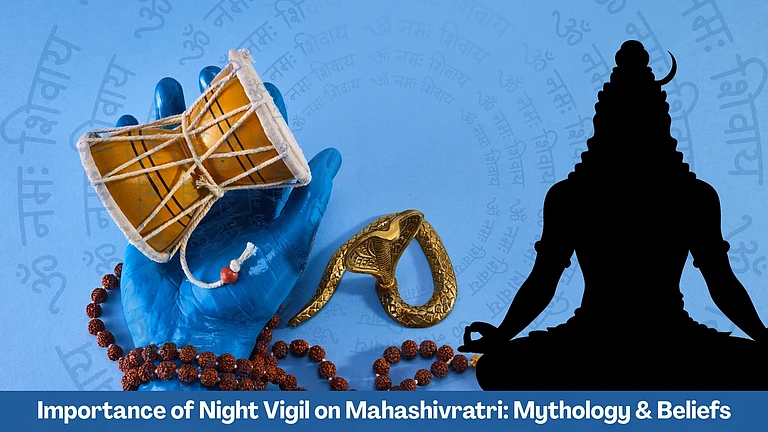India made a profound impact on his mighty intellect. Ambassador Blanchemaison is right when he says in this volume that "Malraux pursued his quest for dialogue between civilisations, and it was while reflecting on the art of the subcontinent that his ideas on the relationship between art, religion and politics gained their depth." Malraux first came to India in 1929 or was it 1930? He never cared to clear the confusion. He met Nehru in Paris in 1936 and that extraordinary meeting in a Paris restaurant has become part of Indo-French folklore, thanks to Raja Rao, who was responsible for bringing these two men together.
Three versions of the meeting exist—Malraux's, Raja Rao's and Nehru's. Raja Rao's is produced here in full and leaves one breathless, as it left Nehru speechless. Malr-aux's is available in his book Antimemoires. Nehru's is given in his Discovery of India and is reproduced in this volume: "Eight or nine years ago, when I was in Paris, Andre Malr-aux put me a strange question at the very beginning of our conversation. What was it, he asked me, that enabled Hinduism to push away organised Buddhism from India, without a major conflict over a thousand years ago? How did Hinduism succeed in absorbing, as it were, a great and widespread popular religion, without the usual wars of religion which disfigure the history of so many countries...?"
Only a superbly crafted intellect could have asked the question. Nehru's response was laconic at the time, but in Discovery he wrote: "For Malraux the question was obviously not just an academic one. He was full of it, and he burst out with it as soon as we met. It was a question after my own heart.... But I had no satisfactory answer to it for him or for myself. There are answers and explanations enough, but they seem to miss the core of the problem."
In 1958, Malraux joined General de Gaulle's cabinet as minister for information and culture. He paid an official visit to India in November that year, met Nehru and saw parts of the country he had not seen before. The visit resulted in the biggest ever exhibition of Indian art in Paris in 1960. Two years before his death, he was awarded the Jawaharlal Nehru prize for international understanding on November 13, 1974. Indira Gandhi, who spoke at the award ceremony, said something very stirring: "Malraux burst upon European literature not as a writer, but as an event. Few contemporary authors have done as much as he to kindle in European thought a consciousness of the dimensions of Asia. Profoundly influenced by Hindu and Buddhist scriptures, Malraux, the self-proclaimed agnostic, reveals a 'Hindu atma' in his writings." Malraux's response was original, poetic and practical. Accepting the honour, he suggested the creation of an Institute of International Methods of Action in India. "Why India?" he was asked. "Because Gandhism is the single example in the world of revolutionary thought which has triumphed without shedding blood. I am aware of the nuances implicit in this assertive. It hardly matters: I am not instituting a roll of honour, I am emphasis-ing a characteristic. Usually we find ethics without revolution or revolution without ethics. Gandhism brought about an ethical revolution, and that's the hallmark of its glory." In Antimemoires Malraux writes of "an intellectual problem, which interested me a great deal: how to reduce to the minimum the play acting side of one's nature." In this case, the actor sometimes got the better of the act and led to adventure, not always with desirable results. Collier's Encyclopaedia has dealt with this aspect of his life with understandable delicacy and circumspection: "In 1924, he went on an archaeological trip to Indo-China with his wife Clara, he was involved in some political difficulties with the French authorities there, and after 1925 moved to China."
Actually, Malraux got into serious trouble in Cambodia and his biographer Jean Lacouture has dealt with this melancholic episode at some length. There is no doubt that Malraux was a writer of the highest talent and Lacouture suggests that he should have got the Nobel Prize for literature, but for the cussedness of "a few puritan professors of the Stockholm Jury, what other French writer, since Victor Hugo, will have so animatedly stirred, directed, orientated the art and life of the collectivity, the colour of its towns, the chances of being a man and an artist in one's own country?" Mr Mitterand is less enthusiastic. He prefers the Malraux of Man's Fate and Man's Hope to the Malraux of Antimemoires and The Fallen Oaks. So do I.






















